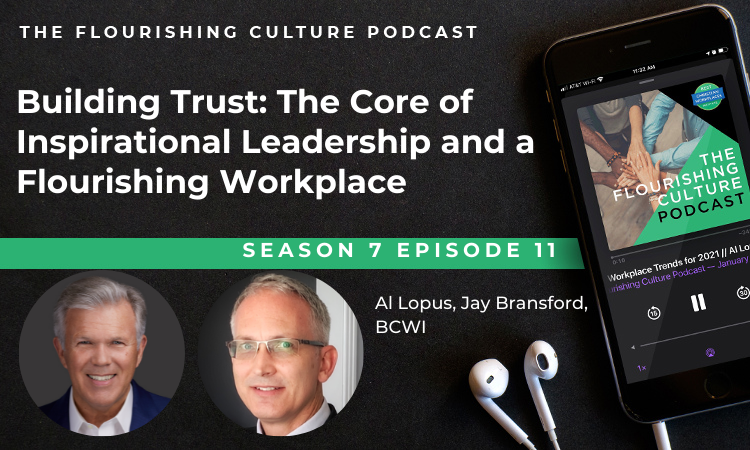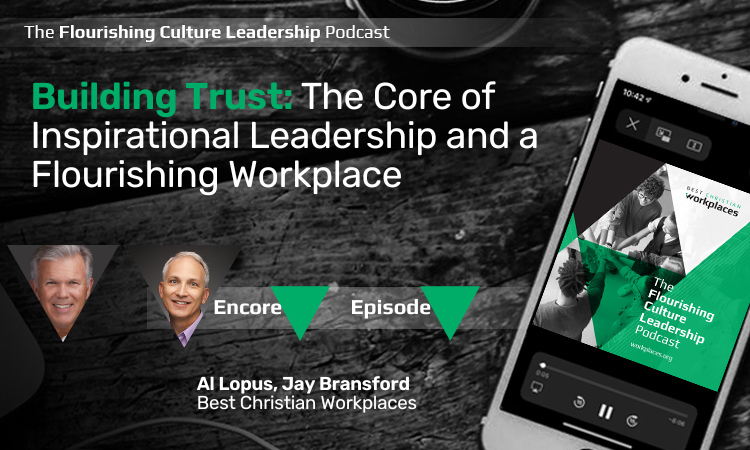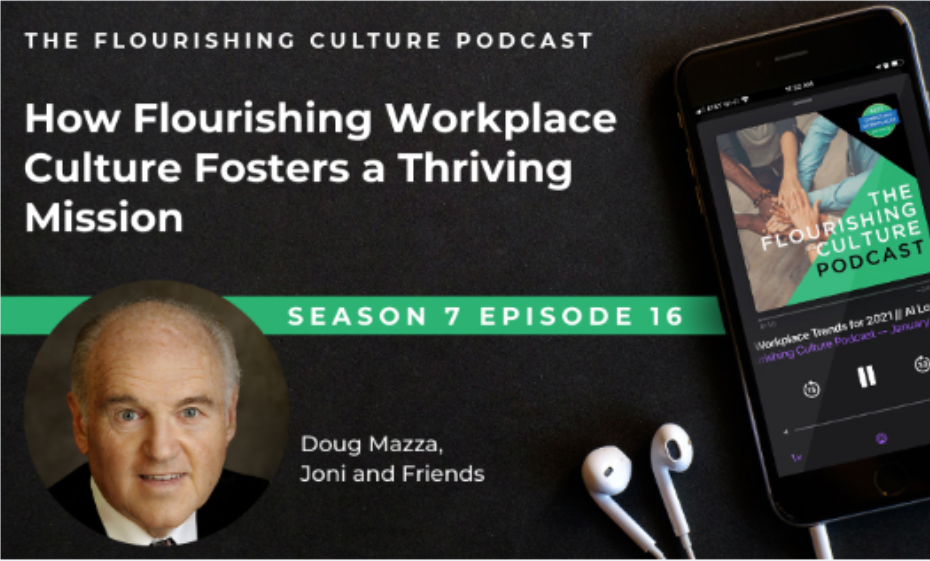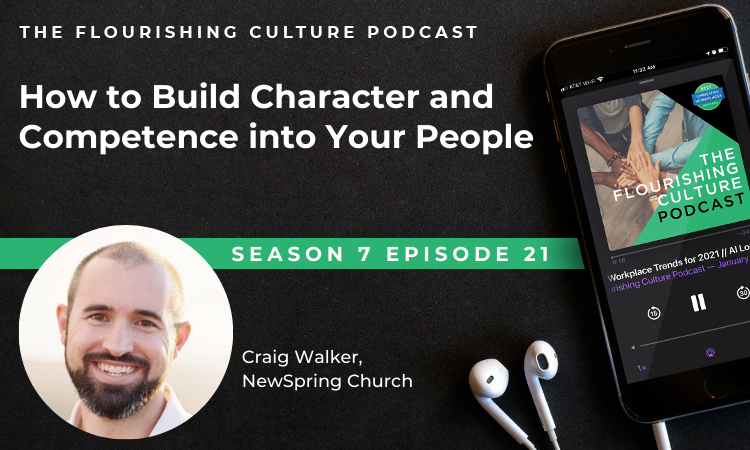If there was one thing that you could work on as a leader that would improve your relationship with others, and your organization's effectiveness, what would it be? Jay Bransford, President and CEO at Best Christian Worklaces, discusses building trust, the core to Inspirational Leaders, and a Flourishing Workplace.
Listen to the Audio
Listen on Apple Podcasts | Listen on Stitcher Radio | Listen on Google Podcasts
In this episode:
- The definition of “trust” that we use comes from the International Association of Business Communicators: Trust is the organization’s willingness, based upon its culture and communication behaviors in relationships and transactions, to be open and honest, based on the belief that another individual, group, or organization is also competent, open and honest, concerned, reliable, and identified with common goals, norms, and values. (03:13)
- "Trust is complex and quite a few things can build or break trust. The communal aspect of trust is a culture of competence, honesty, and reliability, along with good communication and common vision." (03:49)
- We like this definition because it reflects the communal aspect of trust, a culture of competence, honesty, and reliability along with good communication and common vision. (04:19)
- Trust is a feeling one person has for another person’s capability and reliability supported by their past actions. (04:52)
- In the book, Speed of Trust, Steven MR Covey creates a very compelling image when discussing the importance of trust in organizations. He puts trust into a very simple formula: Increased trust among coworkers produces an increased speed of efficiency and a decrease in cost because they can get more things done. (05:24)
- "Trust is the glue that holds relationships and culture together and it creates engagement in the workplace." (06:07)
- As an example, I remember working with an organization that had significant trust issues. During their leadership team meetings, progress and change had slowed because one team member accused a colleague of skewing results to make his department look better. Suddenly, the leadership team had to focus their attention on proving they had not done something wrong to a hostile department head, instead of working to improve their organization and serving their ministry recipients. This never would have happened in an environment based on trust. Bottom line: Work productivity increases significantly in a high trust environment. (06:16)
- At BCWI, we have found three commitments to be highly effective in creating and sustaining effective levels of trust. (07:03)
- Lead with character (07:17)
- Shift focus from “doing activities” to “achieving results.” (08:30)
- Expect to win. (08:45)
- Develop the strength and stamina to finish strong. (09:06)
- Cultivate consistent integrity (09:44)
- Keep the communication going both ways (12:01)
- Demonstrate concern (14:52)
- Five strategies to overcome distrust (19:14)
- Changing the Leadership
- Rallying around a crisis or opportunity
- Breaking the structural frame that caused the trust to be broken
- Eliminating trust eroding practices
- Stressing teamwork to achieve results
- Capitalizing on collective wins
- Eight things high trust teams do to flourish (23:19)
- Ask yourself and your teammates each of the following questions: (23:26)
- Who are we?
- Where are we now?
- Where are we going?
- How will we get there?
- How will we get there?
- What is expected of us?
- What support do we need?
- How effective are we?
- What recognition do we get?

Read the Transcript
Read a complete, word-for-word transcript of the episode.
FOLLOW OUR HOST
Follow our Host, Al Lopus, on LinkedIn & Twitter.
Email our host at info@workplaces.org
 Best Christian Workplaces
:
March, 14 2022
Best Christian Workplaces
:
March, 14 2022



